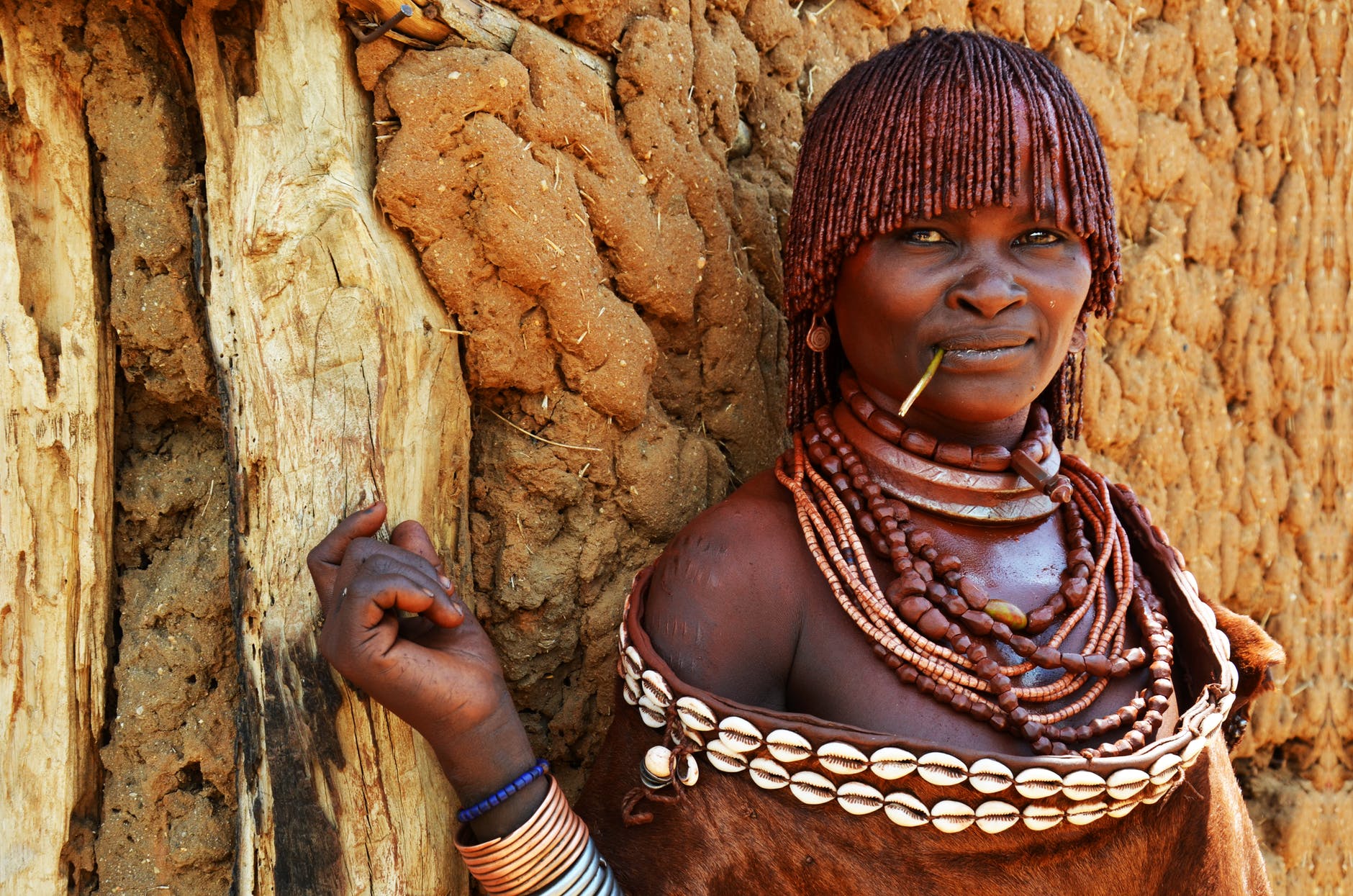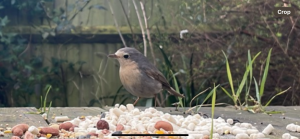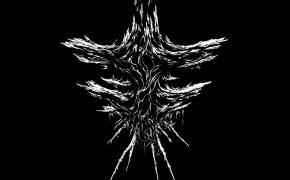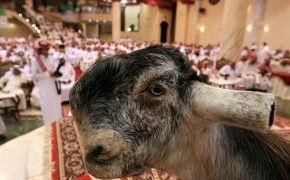Human Universals: What Makes Us Human?
In the 1990s, an anthropologist published a list of “human universals” — traits, behaviors, and the like, that all humans share. It is a fascinating glimpse into the human condition.
Image credit
These days, and quite possibly since the dawn of time, humans have seemed more interested in the characteristics that make us different than the traits that we have in common.
In an age where the left is concerned about the rise of the right, the right is concerned about the rise of the left, the religious are concerned about the liberalisation of Western society, the unreligious are concerned about the radicalisation of religious groups, uncontacted tribes are concerned about their lives being tainted forever by modernity, and modern societies are concerned that they have lost touch with the way life used to be, division is everywhere.
Now seems like a good time to be reminded of the actions, behaviors, and thought patterns that bind humanity together; for there are many.
In 1991, a professor of anthropology, Donald Brown, published a book called Human Universals. In it, he presents a list of “features of culture, society, language, behavior, and psyche” that, he claims, appear in all human societies, everywhere on earth.
These human universals are not confined to humans, some animals show some of these behaviors, too; and other anthropologists have debated the validity of some of the entries; all in all, though, they still make interesting reading. Below is a list of just some of Brown’s human universals.
Humans (and other animals) have evolved to favour Us over Them; it is an automatic response, hardwired into our brains. This response makes sense: in nature, one is better off trusting someone like Us than an individual who seems different.
It’s a safety mechanism that, thanks to our highly evolved frontal cortex, humans can override; “can” is the important word here, though: it takes conscious effort to consider Them on a par with Us. Also, unless we are aware that we have this ready-made, intuitive distrust of others, we won’t know that we should be overthrowing it.
This helps explain why shifting cultural norms can take generations, and why racism, sexism, and other -isms are so pervasive and so slow to be broken.
There is a labyrinth of mechanisms behind each form of prejudice, of course, but our inbuilt, knee jerk against differences certainly does not help.
Ruminating on the entries in the following list of human universals helps one feel a little more connected to the folks around us and those much further afield. We are one species. We are one tribe… well, we used to be, any way…
Here is an abbreviated list:
- abstraction in speech & thought
- actions under self-control distinguished from those not under control
- aesthetics
- affection expressed and felt
- age grades
- age statuses
- age terms
- ambivalence
- anthropomorphization
- anticipation
- antonyms
- attachment
- baby talk
- belief in supernatural/religion
- beliefs, false
- beliefs about death
- beliefs about disease
- beliefs about fortune and misfortune
- binary cognitive distinctions
- biological mother and social mother normally the same person
- black (color term)
- body adornment
- childbirth customs
- childcare
- childhood fears
- childhood fear of loud noises
- childhood fear of strangers
- choice making (choosing alternatives)
- classification
- classification of age
- classification of behavioral propensities
- classification of body parts
- classification of colors
- classification of fauna
- classification of flora
- classification of inner states
- classification of kin
- classification of sex
- classification of space
- classification of tools
- classification of weather conditions
- coalitions
- collective identities
- conflict
- conflict, consultation to deal with
- conflict, means of dealing with
- conflict, mediation of
- conjectural reasoning
- containers
- continua (ordering as cognitive pattern)
- contrasting marked and nonmarked sememes (meaningful elements in language)
- cooking
- cooperation
- cooperative labor
- copulation normally conducted in privacy
- corporate (perpetual) statuses
- coyness display
- critical learning periods
- crying
- cultural variability
- culture
- culture/nature distinction
- customary greetings
- daily routines
- dance
- death rituals
- decision making
- decision making, collective
- differential valuations
- directions, giving of
- discrepancies between speech, thought, and action
- dispersed groups
- distinguishing right and wrong
- diurnality
- divination
- division of labor
- division of labor by age
- division of labor by sex
- dominance/submission
- dreams
- dream interpretation
- economic inequalities
- economic inequalities, consciousness of
- emotions
- empathy
- entification (treating patterns and relations as things)
- environment, adjustments to
- envy
- envy, symbolic means of coping with
- ethnocentrism
- etiquette
- explanation
- face (word for)
- facial communication
- facial expression of anger
- facial expression of contempt
- facial expression of disgust
- facial expression of fear
- facial expression of happiness
- facial expression of surprise
- facial expressions, masking/modifying of
- fairness (equity), concept of
- family (or household)
- father and mother, separate kin terms for
- fears
- fear of death
- fears, ability to overcome some
- feasting
- females do more direct childcare
- figurative speech
- fire
- folklore
- food preferences
- food sharing
- future, attempts to predict
- generosity admired
- gestures
- gift giving
- good and bad distinguished
- gossip
- government
- grammar
- group living
- groups that are not based on family
- habituation
- hairstyles
- hand (word for)
- healing the sick (or attempting to)
- hope
- hospitality
- husband older than wife on average
- hygienic care
- identity, collective
- imagery
- incest between mother and son unthinkable or tabooed
- incest, prevention or avoidance
- in-group distinguished from out-group(s)
- in-group biases in favor of
- inheritance rules
- institutions (organized co-activities)
- insulting
- intention
- interest in bioforms (living things or things that resemble them)
- interpolation
- interpreting behavior
- intertwining (e.g., weaving)
- jokes
- judging others
- kin, close distinguished from distant
- kin groups
- kin terms translatable by basic relations of procreation
- kinship statuses
- language
- language employed to manipulate others
- language employed to misinform or mislead
- language is translatable
- language not a simple reflection of reality
- language, prestige from proficient use of
- law (rights and obligations)
- law (rules of membership)
- leaders
- lever
- likes and dislikes
- linguistic redundancy
- logical notions
- logical notion of “and”
- logical notion of “equivalent”
- logical notion of “general/particular”
- logical notion of “not”
- logical notion of “opposite”
- logical notion of “part/whole”
- logical notion of “same”
- magic
- magic to increase life
- magic to sustain life
- magic to win love
- making comparisons
- male and female and adult and child seen as having different natures
- males dominate public/political realm
- males engage in more coalitional violence
- males more aggressive
- males more prone to lethal violence
- males more prone to theft
- males, on average, travel greater distances over lifetime
- manipulate social relations
- marking at phonemic, syntactic, and lexical levels
- marriage
- materialism
- meal times
- mearning, most units of are non-universal
- measuring
- medicine
- melody
- memory
- mental maps
- mentalese
- metaphor
- metonym
- mood- or consciousness-altering techniques and/or substances
- moral sentiments
- moral sentiments, limited effective range of
- morphemes
- mother normally has consort during child-rearing years
- mourning
- murder proscribed
- music
- music, children’s
- music related in part to dance
- music related in part to religious activity
- music seen as art (a creation)
- music, vocal
- music, vocal, includes speech forms
- musical redundancy
- musical reptition
- musical variation
- myths
- narrative
- nomenclature (perhaps the same as classification)
- nonbodily decorative art
- normal distinguished from abnormal states
- nouns
- numerals (counting)
- Oedipus complex
- oligarchy (de facto)
- one (numeral)
- onomatopoeia
- overestimating objectivity of thought
- pain
- past/present/future
- person, concept of
- personal names
- phonemes
- phonemes defined by set of minimally constrasting features
- phonemes, merging of
- phonemes, range from 10 to 70 in number
- phonemic change, inevitability of
- phonemic change, rules of
- phonemic system
- planning
- planning for future
- play
- play to perfect skills
- poetry/rhetoric
- poetic line, uniform length range
- poetic lines characterized by repetition and variation
- poetic lines demarcated by pauses
- polysemy (one word has several meanings)
- possessive, intimate
- possessive, loose
- practice to improve skills
- precedence, concept of (that’s how the leopard got its spots)
- preference for own children and close kin (nepotism)
- prestige inequalities
- pretend play
- pride
- private inner life
- promise
- pronouns
- pronouns, minimum two numbers
- pronouns, minimum three persons
- proper names
- property
- proverbs, sayings
- proverbs, sayings – in mutually contradictory forms
- psychological defense mechanisms
- rape
- rape proscribed
- reciprocal exchanges (0f labor, goods, or services)
- reciprocity, negative (revenge, retaliation)
- regocnition of individuals by face
- redress of wrongs
- resistance to abuse of poser, to dominance
- rhythm
- right-handedness as population norm
- risk-taking
- rites of passage
- rituals
- role and personality seen in dynamic interrlationship (i.e., departures from role can be explained in terms of individual personality)
- sanctions
- sanctions fro crimes against the collectivity
- sanctions include removal from the social unit
- self-control
- self distinguished from other
- self as neither wholly passive nor wholly autonomous
- self as subject and object
- self-image, awareness of (concern for what others think)
- self-image, manipulation of
- self-image, wanted to be positive
- self is responsible
- semantics
- semantic category of affecting things and people
- semantic category of dimension
- semantic category of giving
- semantic category of location
- semantic category of motion
- semantic category of other physical properties
- semantic components
- semantic components, generation
- semantic components, sex
- sememes, commonly used ones are short, infrequently used ones are longer
- senses unified
- sex differences in spatial cognition and behavior
- sex (gender) terminology is fundamentally binary
- sex statuses
- sexual attraction
- sexual attractiveness
- sexual jealousy
- sexual modesty
- sexual regulation
- sexual regulation includes incest prevention
- sexuality as focus of interest
- shame
- shelter
- sickness and death seen as related
- snakes, wariness around
- social structure
- socialization
- socialization expected from senior kin
- socialization includes toilet training
- spear
- special speech for special occasions
- statuses and roles
- statuses, ascribed and achieved
- statuses distinguished from individuals
- statuses on other than sex, age, or kinship bases
- stinginess, disapproval of
- stop/nonstop contrasts (in speech sounds)
- succession
- sucking wounds
- sweets preferred
- symbolism
- symbolic speech
- synesthetic metaphors
- synonyms
- taboos
- tabooed foods
- tabooed utterances
- taxonomy
- territoriality
- thumb sucking
- tickling
- time
- time, cyclicity of
- tools
- tool dependency
- tool making
- tools for cutting
- tools to make tools
- tools patterned culturally
- tools, permament
- tools for pounding
- toys, playthings
- trade
- triangular awareness (assessinjg relationships among the self and two other people)
- true and false distinguished)
- turn-taking
- two (numeral)
- tying material (i.e., something like string)
- units of time
- verbs
- violence, some forms of proscribed
- visiting
- vocalic/nonvocalic contrasts in phonemes
- vowel contrasts
- weaning
- weapons
- weather control (attempts to)
- while (color term)
- world view


















